[ad_1]
[K-Movie Night] Moonlit Winter
by Dramaddictally
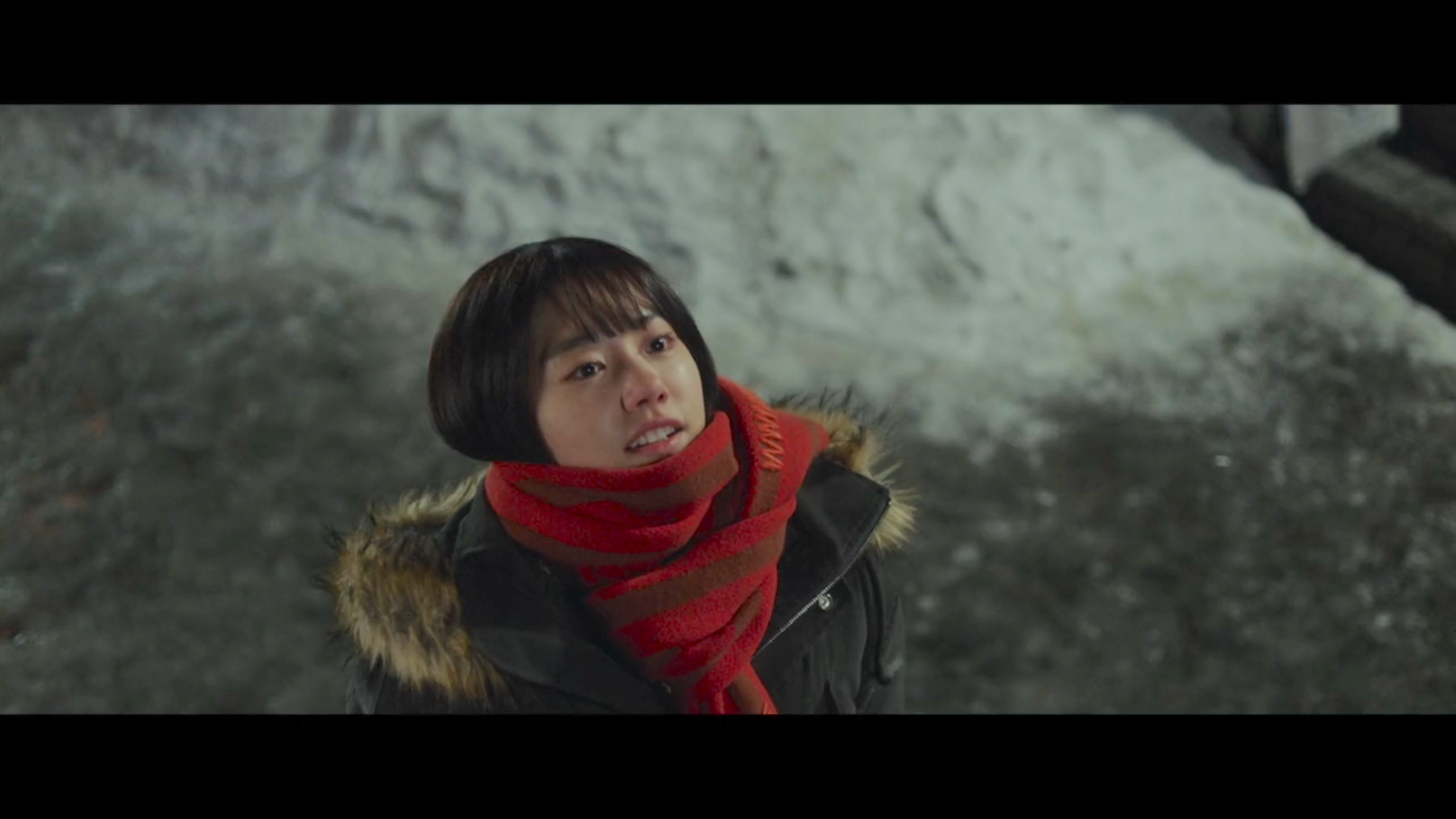
Welcome to K-Movie Night — a once-a-month feature where we microwave some popcorn, put on a face mask, and get cozy with a Korean movie from yesteryear. With so many films finally streaming (with subs!), now is the time to get caught up on all those movies we missed featuring our favorite drama actors.
Each month, we’ll pick a flick, write a review, and meet you back here to discuss whether or not it’s worth a watch. Super simple. All you have to do is kick up your feet and join us in the comments!
MOVIE REVIEW
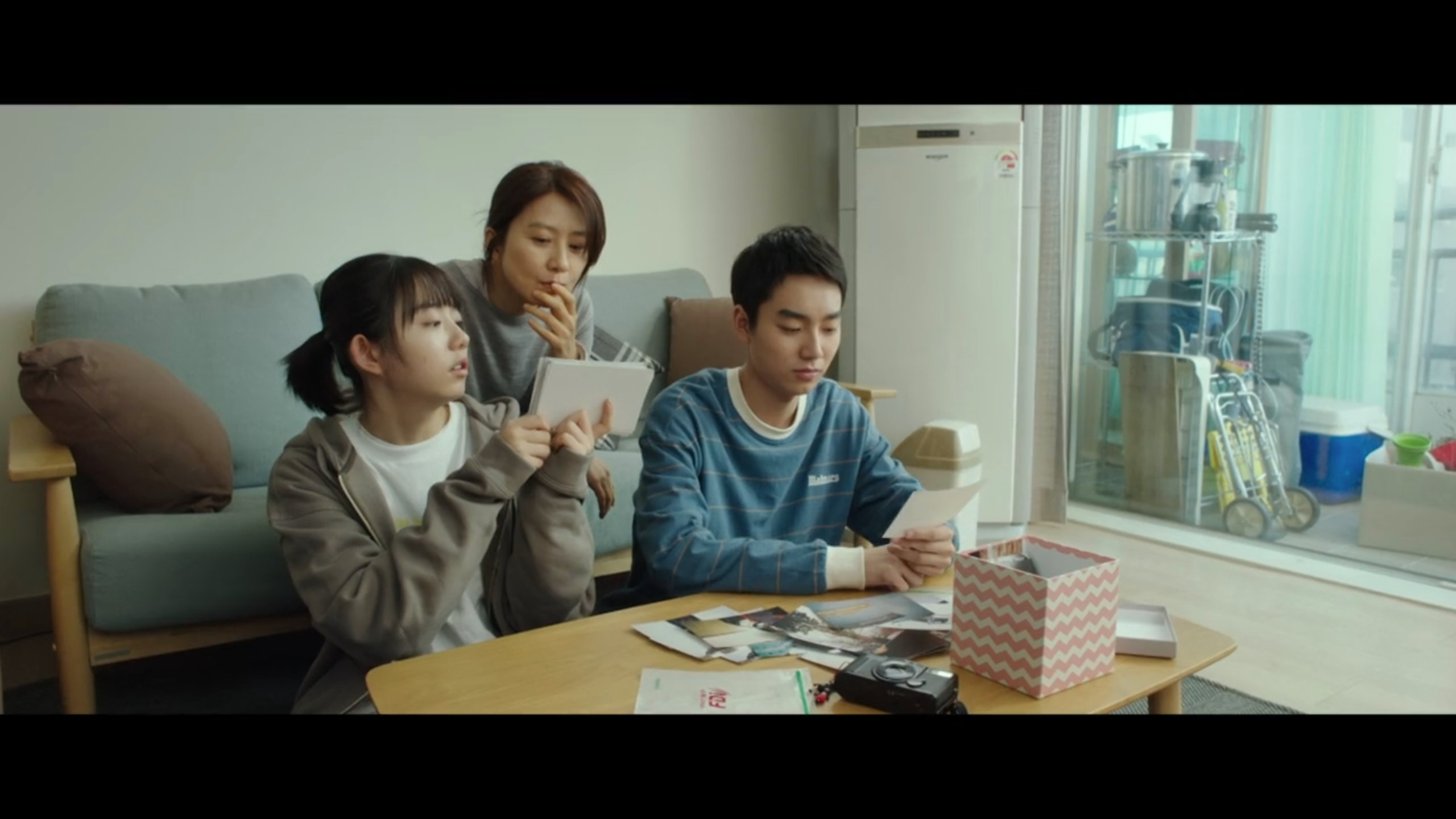
It’s the beginning of snowy season in the north and we’re easing our way in with a winter tale. This particular tale caught my attention for its leads, Kim Hee-ae (who starred in the Netflix hit Queenmaker this year) and Kim So-hye — whose performance in My Lovely Boxer a few months back was a marvel to behold. Ever since the drama ended, I’ve been itching to dig into all her work.
Moonlit Winter was nominated for quite a few awards after it premiered in 2019, and writer/director Im Dae-hyung took home Best Director and Best Screenplay from the Blue Dragon Film Awards in 2021 for this quiet little movie. He’ll be debuting on the small screen with the upcoming drama LTNS (which I mentioned last month, starring Esom and Ahn Jae-hong), but this gives us a first glimpse into his style. We can’t beat the snow, so we might as well dive in.
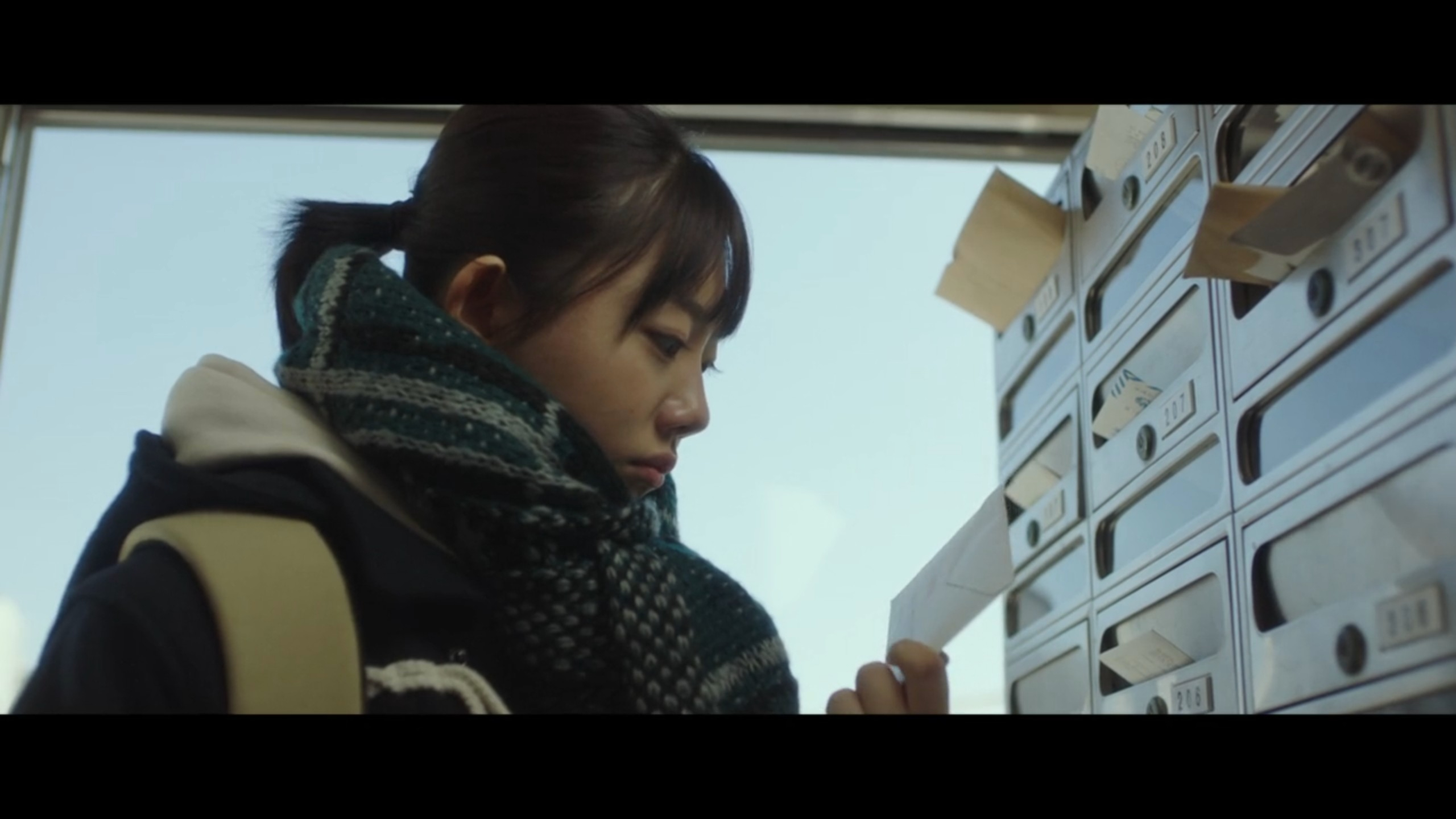
The story starts with a letter. High school senior PARK SAE-BOM (Kim So-hye) has intercepted it in the mailbox, addressed to her mother, KIM YOON-HEE (Kim Hee-ae). It’s from Japan and twenty years have passed since the writer has been back to Korea or seen Yoon-hee. She and Yoon-hee were close in high school but it’s clear that something broke them apart even before she moved abroad.
We meet our characters right when they’re in turmoil. And it’s these breaks in the norm that have them thinking back on the past, and on other breaks in their lives. Yoon-hee has recently divorced Sae-bom’s dad (Yoo Jae-myung) and is dragging through the days at her job in the cafeteria of a factory. Sae-bom, meanwhile, decided to live with her mom after the divorce because Yoon-hee looked like the lonelier parent. But now she thinks she got it wrong and she’s just a burden to her mother.
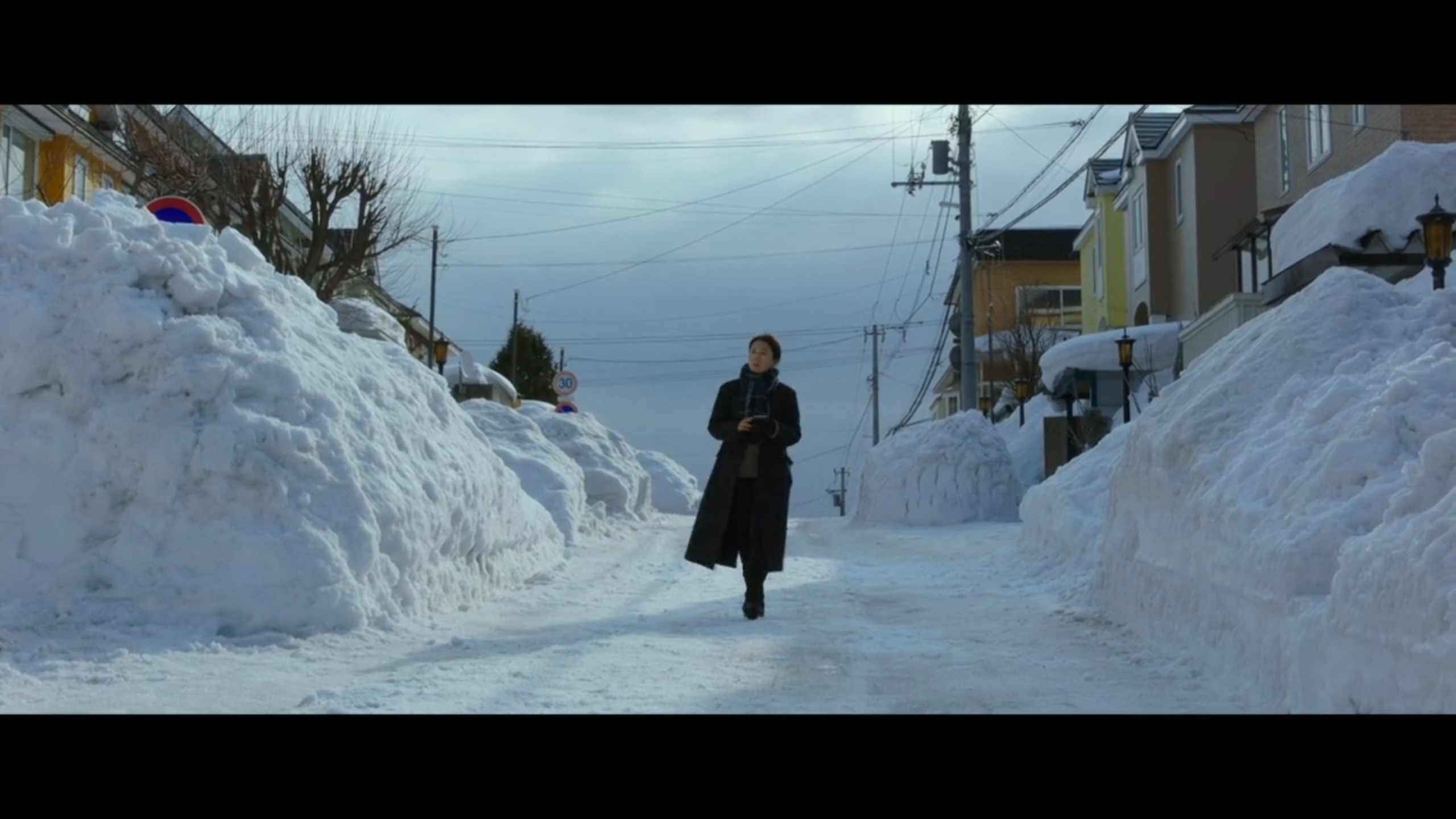
But loneliness is the key word here and Sae-bom hit it right on the head. When she asks her father why they divorced, he says Mom makes people lonely. And we see that Yoon-hee is distancing herself from Sae-bom, likely the same way she did in her marriage, to hide her own pain — not because Sae-bom is a burden.
The filmmaking is striking on this point, because even the way it’s filmed is lonely. It’s as if only the central characters exist, and there’s no one else in the world. There’s a repetition of wide landscape shots, and each time, we see a single, distant person in the middle. For interiors, the camera brackets the leads and dulls any ambient noise, so it’s like they’re alone.
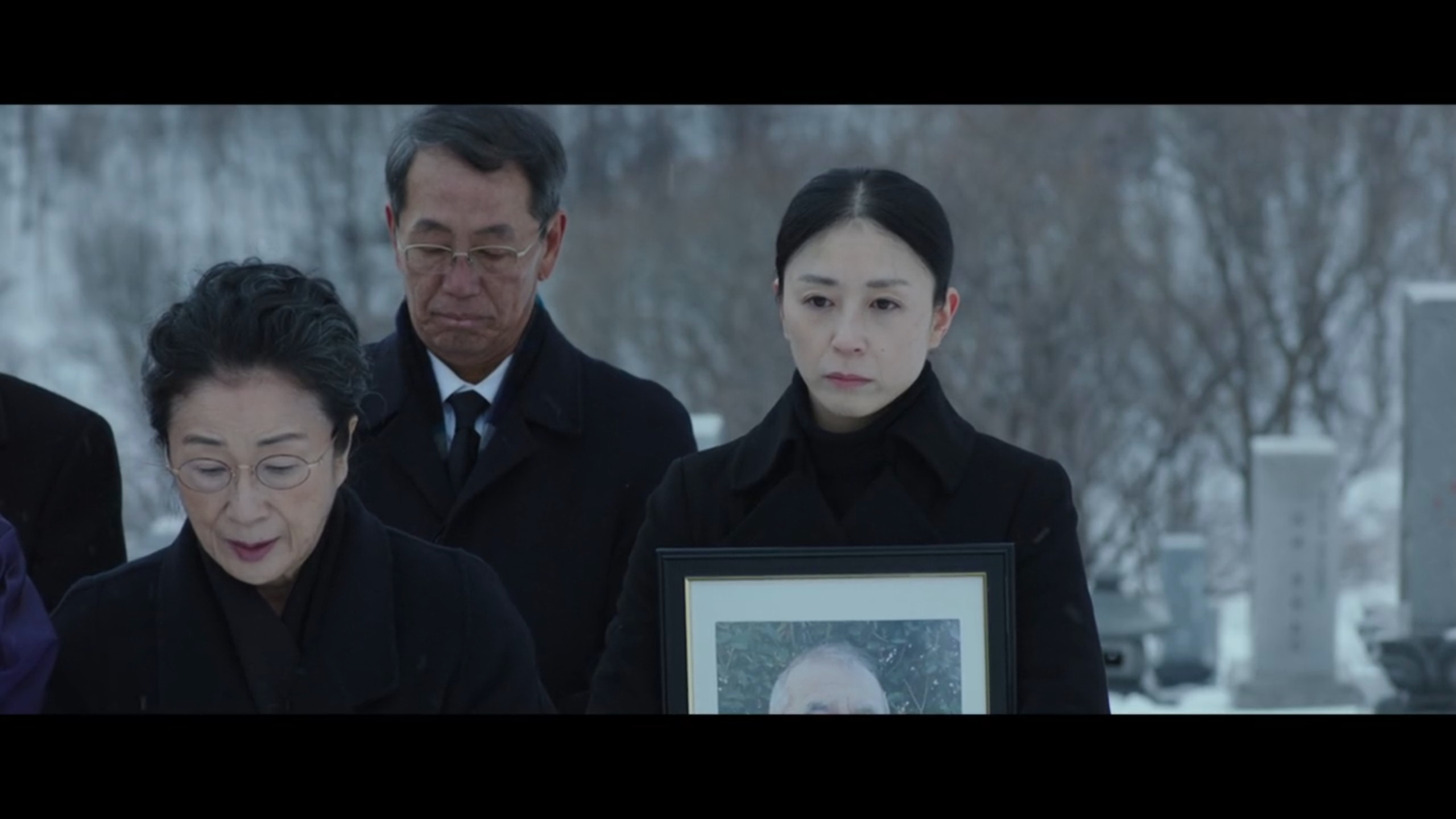
And that’s the single most lonely factor, I think — the silence. Apart from dialogue, we hear crunching footsteps and folding paper — things that would normally disappear into the background din — but here it’s the reverse. The quiet envelopes everything.
The story flips back and forth between Korea and Japan (with quite a bit of dialogue in Japanese) and we spend a long time getting to know, JUN (Yuko Nakamura), the person who wrote the letter. Her father has just died, after a long estrangement, and in this time of grief and mixed emotions, she writes to Yoon-hee. Except, she doesn’t send the letter. Her aunt, the woman she’s been living with since she came to Japan twenty years ago, finds the letter and sends it.
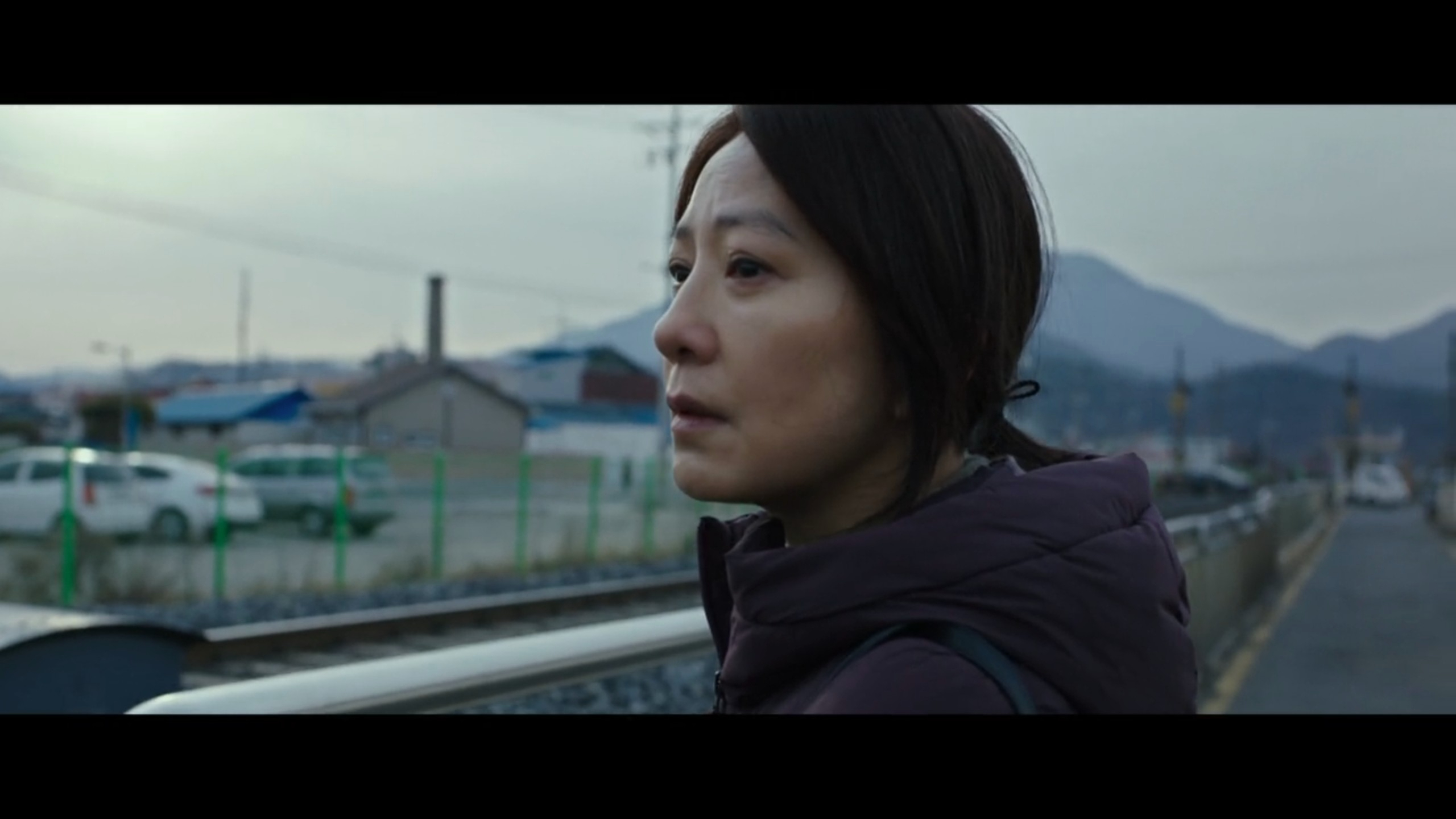
When Sae-bom reads it, she becomes curious about her mother’s life before she was married. Hoping to help her mother heal, she suggests they take a trip to Japan — not knowing that her mom has, by this point, also read the letter. Yoon-hee isn’t sure at first, but the more she thinks it over, looking through her old photo albums at Jun, she decides she wants to go.
In what will be Yoon-hee’s first big turning point, she humbly asks her boss for a few days off. She’s rejected. But then she’s told she can go as long as she doesn’t expect her job to be waiting for her on return. She’s shook. But then says, okay, don’t save it. And the boss is the one surprised because it was only meant to scare her into staying.
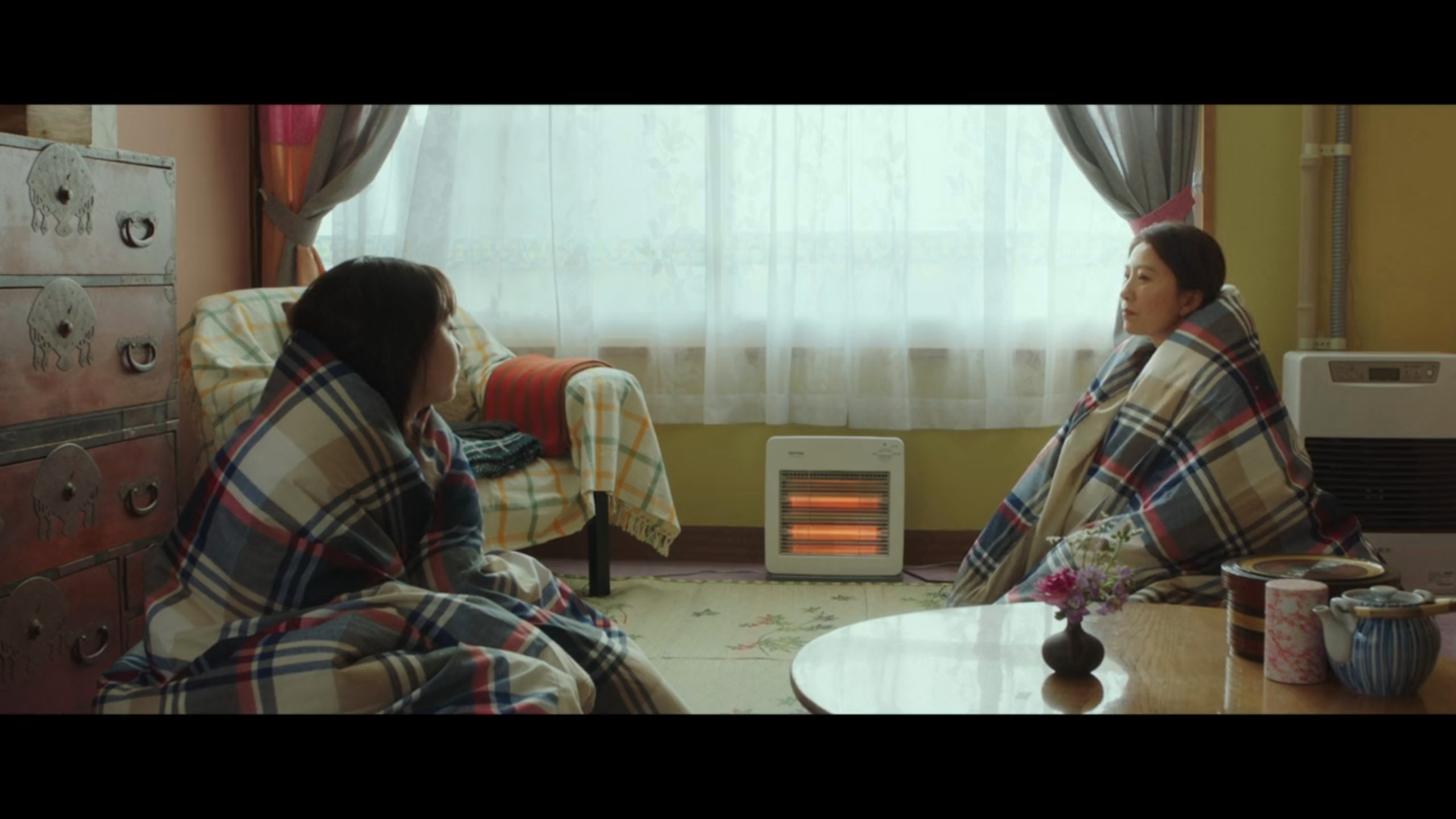
The mother-daughter trip to Japan then becomes a series of these very subtle turning points — so slight they’re almost missable. Sae-bom needles her mom, trying to get her to open up. And Yoon-hee, it turns out, already knows a lot about her daughter — like the fact that she has a boyfriend (who, by the way, she’s snuck onto the trip by having him secretly meet her in Japan). So, while Sae-bom thinks her mom hasn’t noticed her, it’s just that Yoon-hee isn’t used to saying things out loud.
Why Yoon-hee can’t say things out loud — or what it is she can’t say — is the central question that moves the story along. It’s a slow, slight, deliberate movie that follows this singular thread. And getting to the center of what’s going on is like watching the petals fall off a flower one at a time. Once you see the core of it, the magnitude of the entire thing hits you, and you realize every piece was right there from the beginning. The downfall is that it’s so slow going, I got impatient, and didn’t realize until late in the movie that I was supposed to be looking out for the pieces.
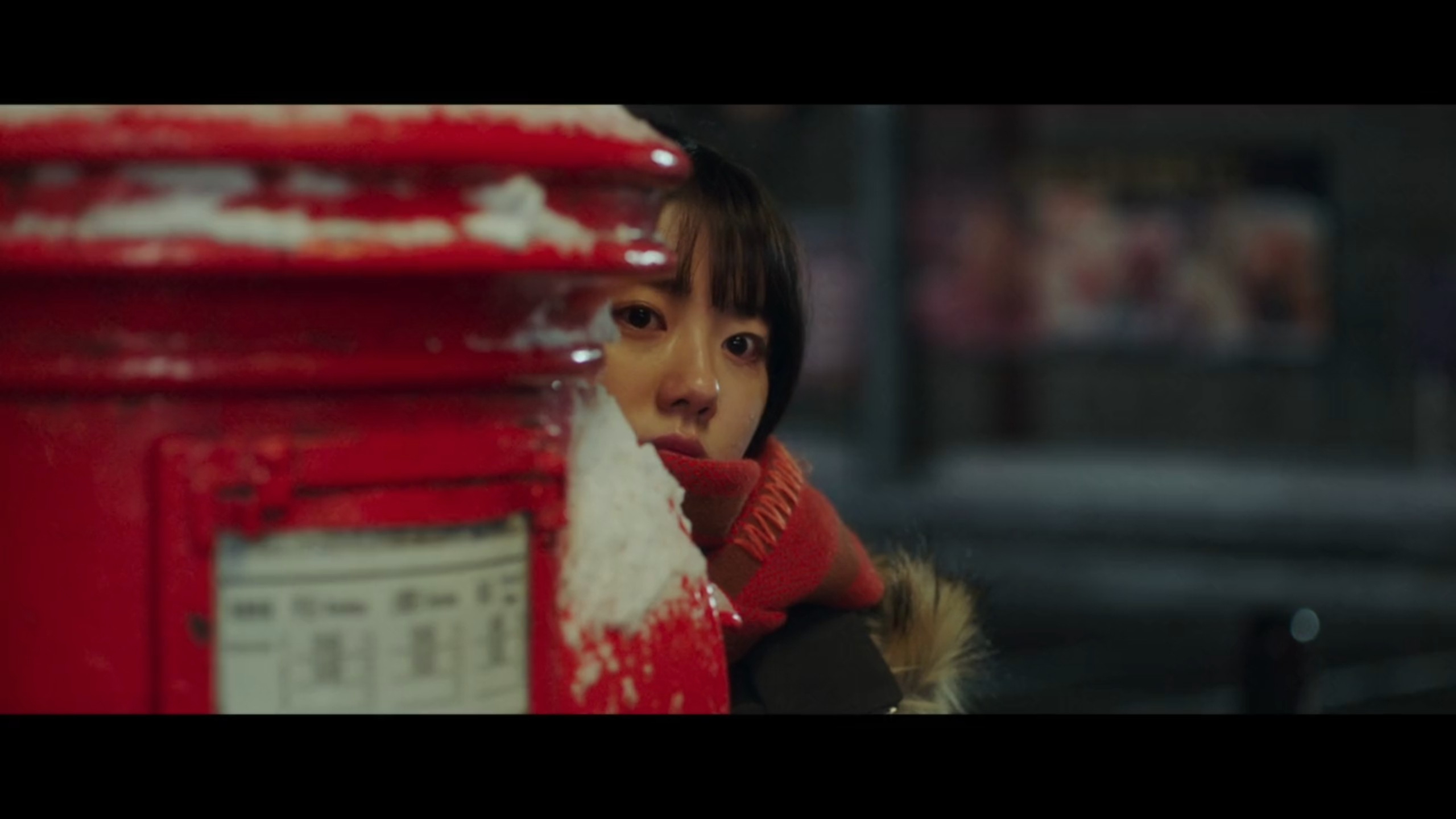
More than a mother-daughter story, this is a film about women — in families, in society, and in relationships. As it moves between Yoon-hee and Sae-bom’s story and Jun and her aunt, there are parallels in their conversations. We see their limits as well as their strengths. Jun and her aunt never married. Yoon-hee never went to college because her parents paid for her brother to go instead.
Now, in the next generation, it’s not even a question whether or not Sae-bom will go to college. She will. And Yoon-hee will do anything it takes to support her studies. But there’s a gentle equality between them too. Sae-bom supports her mom just as much. She understands the depths of what she’s doing when she takes Yoon-hee to Japan to help her reconnect with Jun. And, for me, her character is the highlight — precocious, outspoken, smart — and Kim So-hye plays the role like a natural.
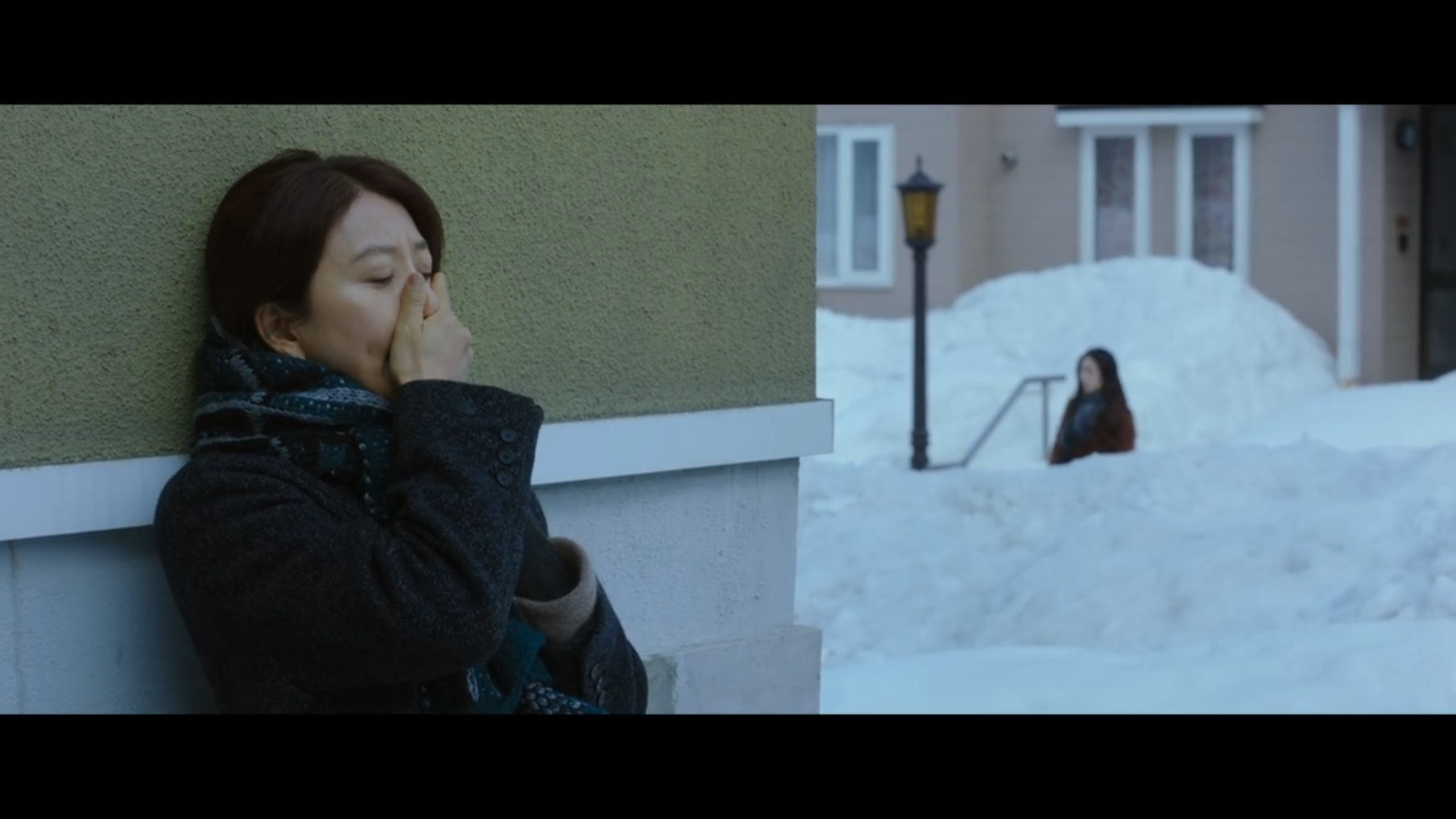
There is some heartfelt emotion here but it’s so repressed, it’s hard to get at it. Although, this is purposeful. The characters are repressed and the storytelling reflects their inner worlds. It’s overflowing with symbolism and the high-piling snow that pervades the shots conveys how buried our characters are and how much they’ve had to keep themselves under wraps. They’re shoveling away, but never can reach what’s underneath.
The very first line in the movie becomes a refrain: “When will the snow die down?” It’s a poetic nod to the cold, dark, frozen emotions the characters continue to face. If you like slow and symbolic, this one’s for you. But be warned, winter is where the story begins — and also where it ends. If you’re looking to land in the sunshine of spring, you might want to look somewhere else.
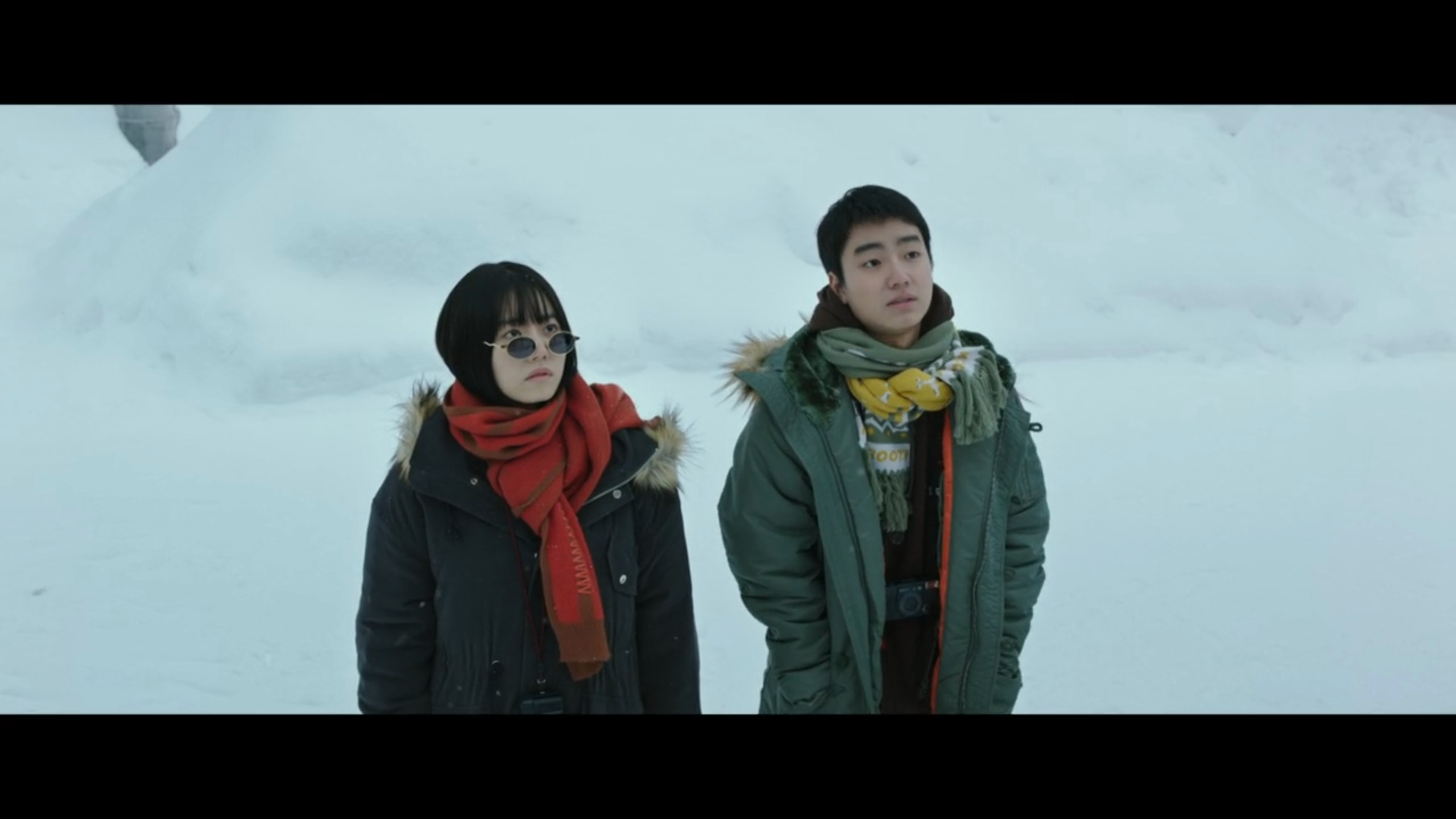
Join us in December for the next K-Movie Night and let’s make a party of it! We’ll be watching New Year Blues (2021) and posting the review during the last week of the month.
Want to participate in the comments when it posts? You’ve got 3 weeks to watch! Rather wait for the review before you decide to stream it? We’ve got you covered.
RELATED POSTS
[ad_2]
Source link

